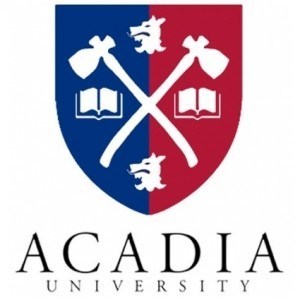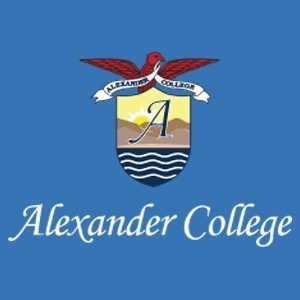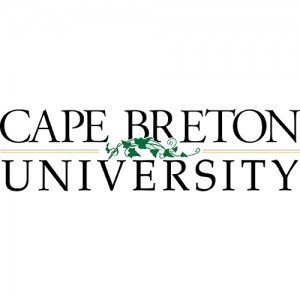Photos of university / #acadiau
Bachelor of Arts in German Studies: The Bachelor of Arts in German Studies at Acadia University offers students a comprehensive exploration of the German language, literature, culture, and history. This program is designed to develop strong linguistic skills alongside a deep understanding of German-speaking societies, their traditions, and their place in the world. Students will engage with a diverse curriculum that includes language courses, literary analysis, cultural studies, and historical contexts, enabling them to gain proficiency in both spoken and written German. The program emphasizes immersive learning, including opportunities for exchange programs, internships, and cultural events, to enhance practical language use and intercultural competence. Through rigorous coursework and experiential learning, students will develop critical thinking, analytical skills, and cultural awareness that prepare them for careers in international relations, translation, education, business, and further academic pursuits. The German Studies program at Acadia University also encourages students to explore interdisciplinary connections, integrating perspectives from history, politics, linguistics, and arts. Faculty members are dedicated to providing personalized mentorship and fostering a vibrant academic community where students can thrive academically and personally. Graduates of this program will be well-equipped to navigate globalized environments, communicate effectively across cultures, and contribute meaningfully to international dialogues. Whether pursuing careers in diplomacy, global business, education, or research, students will find that the skills and knowledge gained through the German Studies program serve as a valuable foundation for their professional development.
Program Overview
The Bachelor of Science in Computer Science at Acadia University offers a comprehensive and rigorous curriculum designed to equip students with a solid foundation in the fundamental principles of computing, programming, software development, and algorithms. The program emphasizes both theoretical understanding and practical application, ensuring graduates are well-prepared for careers in technology or further academic pursuits. Throughout the program, students will develop critical problem-solving skills, learn to design and implement complex software systems, and gain insights into the evolving landscape of computer science.
Course Content
The curriculum includes core courses such as Introduction to Programming, Data Structures and Algorithms, Computer Systems and Architecture, Software Engineering, Databases, and Operating Systems. Students also explore advanced topics like Artificial Intelligence, Machine Learning, Cybersecurity, and Web Development. Emphasis is placed on hands-on experience through laboratories, group projects, and internship opportunities, fostering teamwork and real-world problem-solving abilities.
Research and Innovation
Acadia University's Computer Science program encourages students to engage in research activities and innovative projects. Opportunities are available to participate in faculty-led research, contribute to open-source initiatives, or develop independent projects addressing current challenges in technology. This experiential learning approach enhances critical thinking skills and allows students to apply theoretical knowledge to practical scenarios.
Career Prospects
Graduates of the program are prepared for a wide range of careers in the IT industry, including software developer, systems analyst, network administrator, cybersecurity specialist, data analyst, or research scientist. The program also provides a strong foundation for graduate studies. Acadia University's strong industry connections and career services support students in internships, co-op placements, and job placements upon graduation.
Program Duration and Structure
The Bachelor of Science in Computer Science is designed as a four-year program, consisting of coursework across various semesters, including general education, major-specific courses, and elective options. The program balances theoretical coursework with practical training, ensuring graduates are equipped with both conceptual understanding and technical skills.
Admission Requirements
Prospective students are expected to have completed secondary education with strong qualifications in mathematics and sciences. Specific admission criteria include a competitive high school diploma with relevant coursework, language proficiency in English, and other university admission standards.
Unique Features
Acadia University's Computer Science program emphasizes an interdisciplinary approach, integrating elements of mathematics, engineering, and information technology. Small class sizes and close interactions with faculty promote personalized mentorship and collaborative learning. The university’s modern computer labs and research facilities provide students with the resources needed to excel academically and professionally.
In summary, the Bachelor of Science in Computer Science at Acadia University is a dynamic program that combines theoretical knowledge, practical skills, and research opportunities, preparing students for successful careers and lifelong learning in the fast-paced world of computer technology.
Program requirements for the Bachelor of Arts in German at Acadia University include a combination of coursework, language proficiency, and cultural studies. Prospective students must demonstrate a solid understanding of the German language, typically achieved through completion of introductory and advanced language courses. These courses cover grammar, vocabulary, speaking, listening, reading, and writing skills essential for fluency. In addition to language courses, students are required to take a range of core courses in German literature, culture, and history to develop a comprehensive understanding of German-speaking countries. The program emphasizes the development of analytical and critical thinking skills through the study of literary texts, historical documents, and contemporary media. Students are encouraged to participate in cultural activities and may have opportunities for internships or study abroad experiences in German-speaking regions, which are highly recommended to enhance language proficiency and cultural awareness.
To fulfill the graduation requirements, students must accumulate a minimum number of credit hours as specified by the university, usually around 120 semester credits, including both core and elective courses. The program typically spans four years, with prerequisites including introductory courses in German language and literature, followed by intermediate and advanced courses. Evaluation methods include written exams, oral presentations, essays, and participation. In some cases, students may be required to demonstrate language proficiency through standardized testing or departmental assessments. Additionally, research projects and a capstone thesis may be part of the curriculum for advanced students, designed to deepen their engagement with German cultural and literary studies. Overall, the program aims to produce graduates who are proficient in German and possess a thorough understanding of German culture, history, and literature, preparing them for careers in translation, education, international relations, or further academic pursuits.
The financing of the university degree program at Acadia University generally involves multiple sources of funding designed to support both domestic and international students. For Canadian citizens and permanent residents, the primary financial resources include government student aid programs, university scholarships, bursaries, and work-study opportunities. The Canadian federal and provincial governments offer various grants and loan programs such as the Canada Student Loans Program and Nova Scotia student assistance, which provide low-interest loans and repayable grants to qualifying students based on financial need.
Acadia University also provides a range of internal financial assistance options. Merit-based scholarships are awarded to students demonstrating academic excellence, leadership, or other exceptional talents. These scholarships can cover partial to full tuition fees and sometimes include stipends for living expenses. Additionally, the university offers need-based bursaries aimed at assisting students with limited financial resources; eligibility typically requires submission of a financial aid application and supporting documentation demonstrating financial need.
International students enrolling in the program have access to scholarships, though often more limited compared to domestic students. Acadia University offers specific scholarships for international students, which are merit-based and sometimes need-based, helping to offset tuition costs. Furthermore, international students are encouraged to seek external funding sources such as government-sponsored scholarships from their home countries or private sector awards.
Students are also encouraged to explore part-time employment opportunities both on and off-campus. The university’s work-study programs enable students to work in various administrative, research, or service roles, earning income that can aid in financing their education. Moreover, many students supplement their studies through personal savings, family support, or educational loans obtained through private lenders or financial institutions.
Funding for the program may also include co-op or internship components, where students are sometimes paid for their work experiences as part of their academic training. These opportunities not only provide valuable professional experience but also financial benefits, assisting students in financing their studies while gaining practical skills.
In summary, financing a degree at Acadia University typically involves a combination of government assistance, university scholarships and bursaries, personal resources, work opportunities, and external funding sources. Prospective students are advised to thoroughly research eligibility requirements and application deadlines for each funding opportunity to ensure comprehensive financial planning during their studies.
The Bachelor of Arts in German program at Acadia University offers students an in-depth study of the German language, literature, and culture. This program is designed to develop proficiency in speaking, reading, and writing German, while also providing insights into the historical, literary, and cultural contexts of German-speaking countries. Through a combination of language courses, literary analyses, and cultural studies, students gain a comprehensive understanding of the intricacies of German society and its global influence. The curriculum emphasizes both classical and contemporary texts, fostering critical thinking and analytical skills. In addition to linguistic proficiency, students are encouraged to explore interdisciplinary topics such as philosophy, history, art, and politics related to German-speaking regions. The program often incorporates opportunities for study abroad, allowing students to immerse themselves in German-speaking environments and enhance their language skills through real-world practice. Faculty members are experienced language instructors and scholars specializing in German literature and culture, providing mentorship and research guidance throughout the program. Graduates of the Bachelor of Arts in German program are well-prepared for careers in international relations, translation, education, tourism, and business, where knowledge of the German language and culture is an asset. The program emphasizes critical engagement with texts and cultural phenomena, preparing students for diverse professional paths or further academic pursuits such as graduate studies in German, Comparative Literature, or European Studies. Overall, the program aims to foster linguistic competence, cultural awareness, and academic excellence, equipping students with the skills necessary to succeed in a globalized world.





